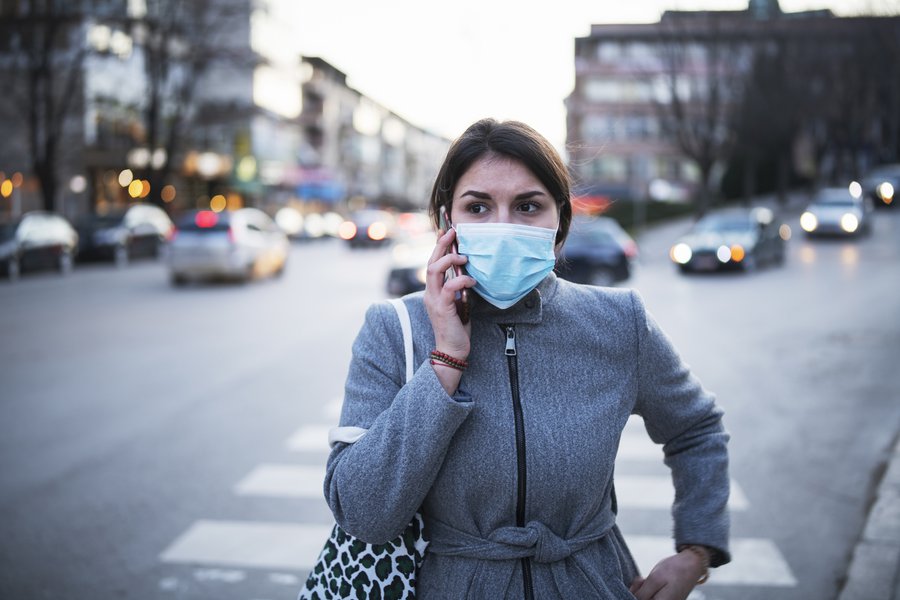
There is no denying the impact the coronavirus (COVID-19) is having on the global economy is troubling. China, the world's second largest economy, has the largest outbreak with over 80,000 cases reported and 3,015 deaths as of this writing and has suffered the greatest. The virus has halted production and caused major interruptions to the supply chain and economic volatility, and it could lead to an estimated $2.7 trillion in lost global output, according to Bloomberg Economics.
Watching China's production and economy falter has people questioning how the coronavirus could impact the American real estate market.
Foreign buyers will increase, at least for a while
Considering China is the largest foreign buyer of residential real estate as of The National Association of Realtors' (NAR) 2019 International Activity in the U.S. Residential Market, accounting for $13.4 billion of $77.9 billion, or 17.2% of the foreign market share, the coronavirus could greatly impact investor activity, but surprisingly in a positive way.
Recently, China's foreign investment in American real estate saw a decline, which many economists attribute to the lower inventory in the U.S., the U.S.-China trade war, and the strengthening dollar.
But as confidence in their own real estate and other foreign markets falters, investors are moving their money into hard assets, like real estate, in areas like the United States, who to this point has not suffered greatly from the spread of the disease. Roofstock, a popular online marketplace for real estate investors to purchase or sell rental real estate, has seen a 450% increase in traffic from Asian countries in the past month.
Revenue and growth in CRE will slow
In the event of a full-blown outbreak here in the U.S., commercial real estate (CRE) would be the hardest hit. Production and economic activity will slow because people will likely stay indoors, lowering consumer spending. Default rates in CRE loans would increase, and production and development would decline.
A number of companies and CRE investors are trying to plan ahead by taking increased measures to reduce the spread of the virus, especially in properties that house or employ multiple people.
Bryan Murphy, CEO of global coworking and private office space provider Breather, tells me he has already implemented "an enhanced cleaning and disinfecting process following guidance from the CDC to ensure Breather's customers are safe and healthy and reduce the potential spread of the virus."
Companies like Amazon (NASDAQ: AMZN), Google (NASDAQ: GOOGL), Apple (NASDAQ: AAPL), and Facebook (NASDAQ: FB) are also planning to prevent the spread of the virus by asking employees to work from home. While these methods can help, CRE investors should have a contingency plan to fall back on in case the virus isn't contained as intended.
Shaky ground gets shakier
The global market and American economy was already on shaky ground prior to the coronavirus outbreak. I previously wrote about a number of signs in our economy that indicate a possible recession in 2020. Those indicators have only been perpetuated as investors' fears about the spread of the coronavirus and impact on the global market grow.
In the past two weeks:
- The Fed dropped interest rates by .05%, down to 1.25%.
- All three major U.S. stock market indexes lost over 10% of their value in what was the worst five-day trading session since 2008.
- The bond market plummeted, with the 10-year Treasury bond's yield dipping below 1% for the first time ever.
- The Senate approved $8.3 billion in emergency funding for the coronavirus.
It's obvious Congress and the Federal Reserve are concerned about the strength of our economy. Lowered interest rates will only help for so long. While this may boost borrowing and deployment of capital in the short term, it's unlikely a fix that will counteract the impact of the virus in the long term.
The market will remain relatively unchanged for now
As of today, Saturday, March 7, there are more than 300 cases of the coronavirus reported in the United States, according to the New York Times. While this number is still relatively low in relation to the 327 million people who live in the United States, it is spreading quickly.
For the time being, it's likely markets will remain volatile with the residential market remaining mostly unchanged for now. Investors can take advantage of lowered interest rates and minimal impact on the U.S. economy up and to this point. If the outbreak continues to grow, it's unlikely our economy or residential real estate market will be able to withstand the impact.
The depth of impact depends on how widespread the virus gets
Unfortunately, only time will tell how the coronavirus will impact the real estate market. There is no doubt the coronavirus will impact the American economy and real estate market in some form, but no one truly knows to what extent.
Many real estate markets in the United States have rebounded and recovered from the 2008 recession, but there is a large chance that the continued spread of the coronavirus could be the tipping point, putting the U.S. economy into a full-blown recession.
"impact" - Google News
March 09, 2020 at 07:45AM
https://ift.tt/2TTdobn
How the Coronavirus Could Impact the American Real Estate Market - Motley Fool
"impact" - Google News
https://ift.tt/2RIFll8
Shoes Man Tutorial
Pos News Update
Meme Update
Korean Entertainment News
Japan News Update
Bagikan Berita Ini














0 Response to "How the Coronavirus Could Impact the American Real Estate Market - Motley Fool"
Post a Comment